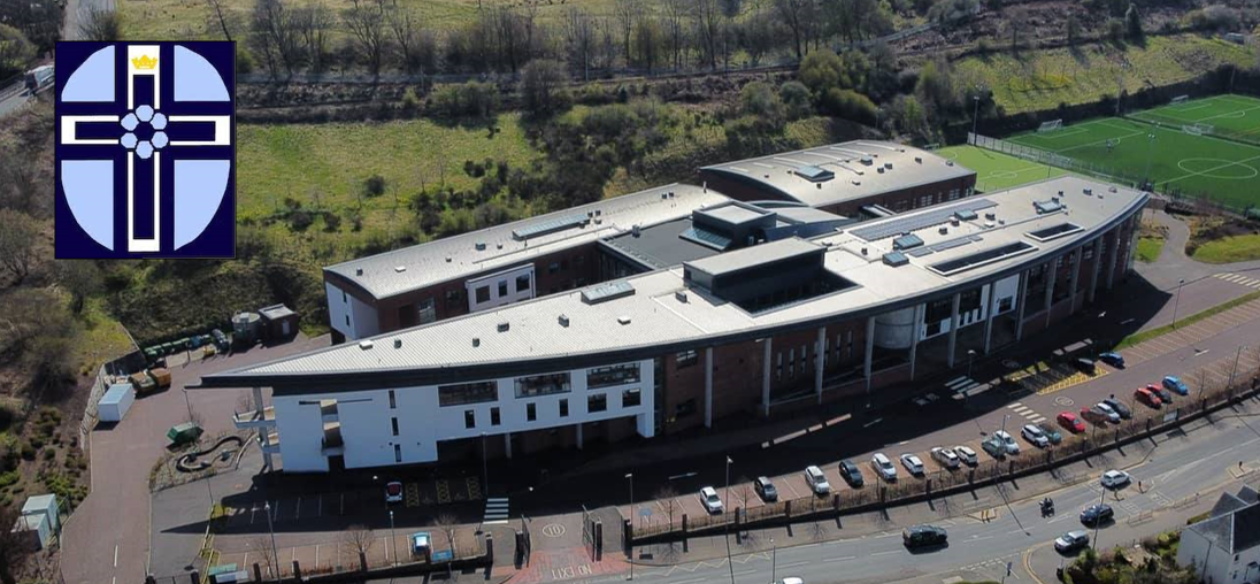Mathematics Resources
3rd Level Maths
4th Level Maths
National 4 Maths
National 5 Maths
National 6 Maths
Course Outline for S1 and S2
The Mathematics course in first and second year is based on the Curriculum for Excellence outcomes. There are programmes of study for each level:-
Level 2 ( 1 to 4 )
Level 3 ( 1 to 4 )
Level 4 ( 1 to 4 )
The main resources are the tee-jay books. This is supplemented with other materials, additional worksheets, active learning activities and problem solving sheets.
Placing of Pupils
Primary teachers, in consultation with the liaison teacher from Notre Dame, will decide on the best starting place for each group of pupils, ensuring continued progression. Pupils from schools out with our own catchment area will be placed at the most appropriate place in the course for them in August.
Liaison Procedure
A member of NDHS Maths Department is associated with each school and is responsible for:
1. Meeting with P7 teachers in May to discuss placing of pupils.
2. Problem solving visits in January and May to introduce P7 pupils to Notre Dame Staff and work.
Feedback
In October of each year, the Maths Department will provide each primary school with a quick report on how each pupil has settled into first year.
Methodology
There is varied methodology throughout S1/2. Pupils are involved in group lessons and whole class teaching. The course guidelines for each level will make clear the appropriate methodology for each topic. In first and second year, all classes are set by ability. It is the job of the teacher to Forward Plan their work in advance for each week.
Homework
All pupils should be given a substantial amount of homework each week, in line with the school homework policy. At the end of each topic, pupils should be given a review exercise, which is marked by the teacher. Detailed advice on homework is contained in the course guidelines. All reviews should be marked and graded by the teacher:
a. work is done to a very high standard.
b. most of the review has been understood.
c. work is not satisfactory.
Assessment in S1/2
1. End of Level Tests
When a pupil has completed a programme of study, they should complete the appropriate end of level test. It is important that a pupil does not start an assessment until:
(a) All homework for that level has been completed and corrected by the pupil.
(b) Time has been given for revision.
End of level assessments should be done in class with pupil sitting on their own. Assessments should be done on loose A4 paper and filed in pupil’s assessment file.
2. Other Assessment
Part of the Department Improvement Plan is developing other methods of more informal assessment, advice on this will follow.
Developing Study Skills
All pupils should be trained to take notes in the notes jotter. All completed records of achievement and assessments should be kept in the pupil’s assessment file.
Records of Achievement
Records of achievement are available for all courses. Each record contains:
(a) Space for review grades and comments.
(b) Mark for end of unit assessment.
(c) Target set by pupils and written on record of achievement.
All grades should be carefully recorded and inserted in the pupil’s assessment file when completed. Part of the Department Improvement Plan is developing other methods of pupils self evaluation, advice on this will follow.
Assessment Files
Each pupil should have an assessment file containing a record of their work from S1-S2. The file should be in the current teacher’s filing cabinet. The file should contain the following:
1. All S1/S2 end of level assessments.
2. Copies of all profiles.
Problem Solving and Enquiry
All 1st/2nd year classes should have some periods spent on Problem Solving and Enquiry. During this period, pupils could also spend some time consolidating Mental Arithmetic work and discussing the relevant strategies.
The main problem solving and enquiry resource in the department is C.A.M.E. Maths. It is hoped to get a balance between problem solving activities that are common to every class and others that are of the teacher’s own choice. Teachers can choose from the wide-ranging problem solving activities available in the department to supplement the C.A.M.E. work. Teachers may also wish to spend time during this period using the activities on the whiteboard, if available.
Support for Learning
It is hoped, with the department now having a fully differentiated course that in general, pupils are working at their correct level. However, we must deal properly with the pupils at each extreme and make sure they are being adequately catered for.
Pupils who need a lot of support
The support for Learning Department are deployed in 1st/2nd year classes, in particular to work with pupils needing support in Mathematics.
It may be necessary to consult the Support for Learning Department for suitable resources for some pupils.
The most important thing with these pupils is to make sure they are achieving some success, to praise and to foster a good relationship. They should enjoy coming to Mathematics. They should have a varied programme of work and not just do practice in basic number work.
More Able Pupils
Are they enjoying Maths?
Are they being challenged?
Is there anyone else in the class who could be inspired by more challenging work?

